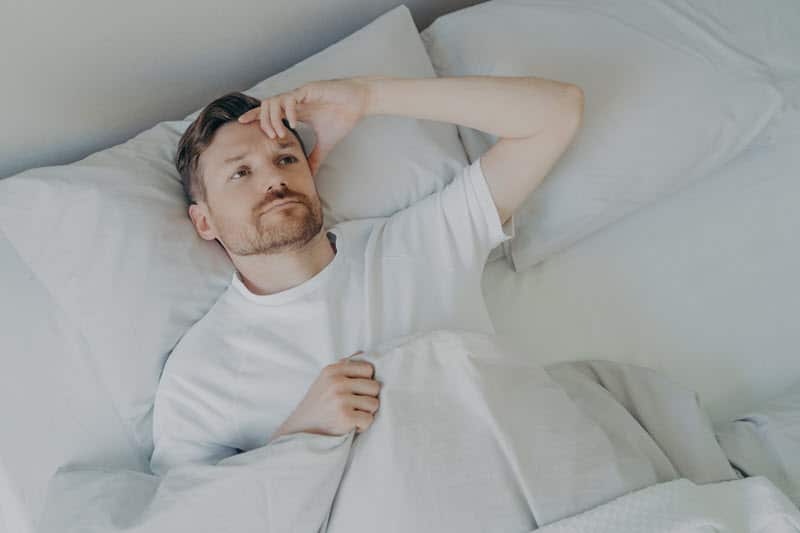Changes in Sleep Patterns and Poor Sleep

Poor sleep can decrease testosterone levels, but having low testosterone can also lead to insomnia. It is a prevalent sleep problem that can make it difficult to get asleep, maintain sleep, or result in waking up early and having trouble falling back asleep.
The testosterone levels in a group of 10 healthy young men were compared in a study by the American Medical Association, following a week of regular sleep and a week of sleep deprivation. In comparison to their rested states, the data showed that testosterone levels dropped by 10%–15% following the sleep-deprived week. The participants’ lack of vigor was likewise linked to this drop in levels of testosterone.
There could be a solution to break this vicious cycle of insufficient sleep and low testosterone. Generally speaking, increased sleep will raise testosterone levels. However, a study investigating the influence of “catch-up” sleep on the body found that testosterone levels rise shortly after starting to get more sleep. The advantage comes from the hours of added deep sleep.
Additionally, low testosterone seems to be associated with fewer deep sleep cycles and poorer sleep quality. According to studies, the hormone cortisol rises as testosterone decreases. Cortisol causes alertness, which causes shorter, shallower sleep.










